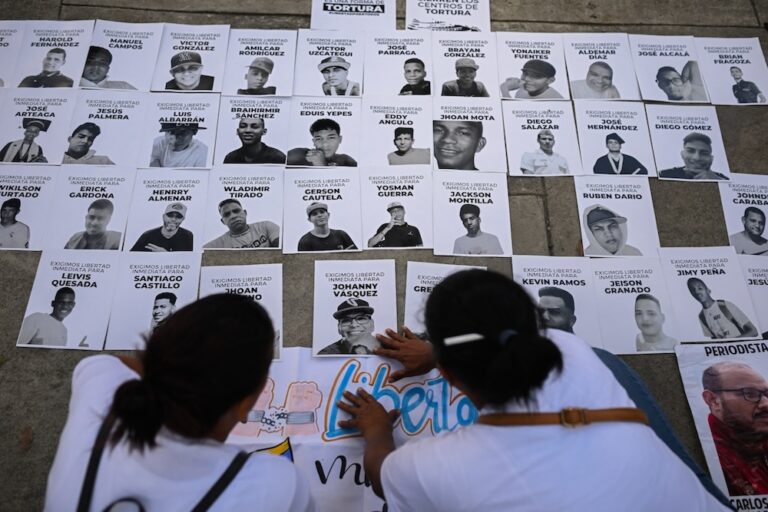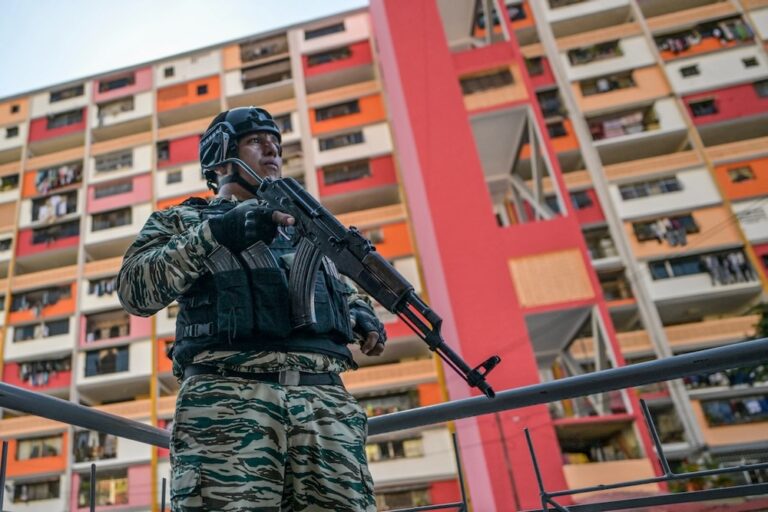Records kept by IPYS-Venezuela on the right to freedom of expression and information show that the national government's handling of information on the health of the president has been lacking in transparency, resulting in an aggressive discourse towards the national and foreign press.
(IPYS-Venezuela/IFEX) – The records kept by IPYS-Venezuela on the right to freedom of expression and information show that the national government’s handling of information on the health of the president of the republic, Hugo Chávez, has been lacking in transparency, resulting in an aggressive discourse towards the national and foreign press. Several representatives of the executive power have recurrently disqualified, intimidated and accused the journalists and the media of questioning the government’s legitimacy, for presenting information from various sources on the health of the nation’s head of government.
Since the president informed the public, on December 8, 2012, that he had to undergo a new surgical operation in Cuba, due to the appearance of new cancer cells, representatives of the executive power have accused the national and foreign media of keeping up a “destabilizing campaign”, through the alleged “malicious” handling of the news coverage of the health of the head of government and the way the nation is being governed during his absence.
Plurality and diversity of the media at risk
The start of sanction-based administrative proceedings, the recurrent use of compulsory official speeches broadcast on radio and television, as well as the repeated use of state-owned media to disseminate messages criminalizing the private and independent media’s work have been recorded. This situation threatens the fundamental rights to plurality and diversity on which freedom of expression, an indispensable principle of democratic society, is based.
Likewise, these official reactions against the press do not favor the socio-political climate in the nation, which is marked by imprecise and scarce sharing of information by the official sector through reliable, qualified, pertinent and timely sources.
This situation is a response to the radicalization of the government’s policy which limits access to public information, a fundamental right permitting citizens access to unbiased details on affairs of collective interest regarding state institutions and public officials. In this manner, opacity has characterized the national government’s information strategy on the illness of President Chávez.
Clarity, precision and reliability of information have been absent. Although Nicolás Maduro, the vice-president of the republic, and Ernesto Villegas, the minister of communications, have issued close to 30 official messages to the nation on the health of the president since December 10, 2012, these communiqués are lacking in details. Therefore it can be considered that the media and the citizens have not received valid medical information from certified professionals in this field, describing the health condition of the head of state since June 2011. Society in general has not had access to a specialized report prepared by a Venezuelan medical board that sheds light on the situation.
Faced with this outlook, the citizens’ right to know the detailed conditions on the state of the president’s health is being limited, even though it is information of collective interest, and the principles of freedom of expression and public information enshrined in articles 57, 58 and 143 of the Constitution of the Bolivarian Republic of Venezuela are being violated.


